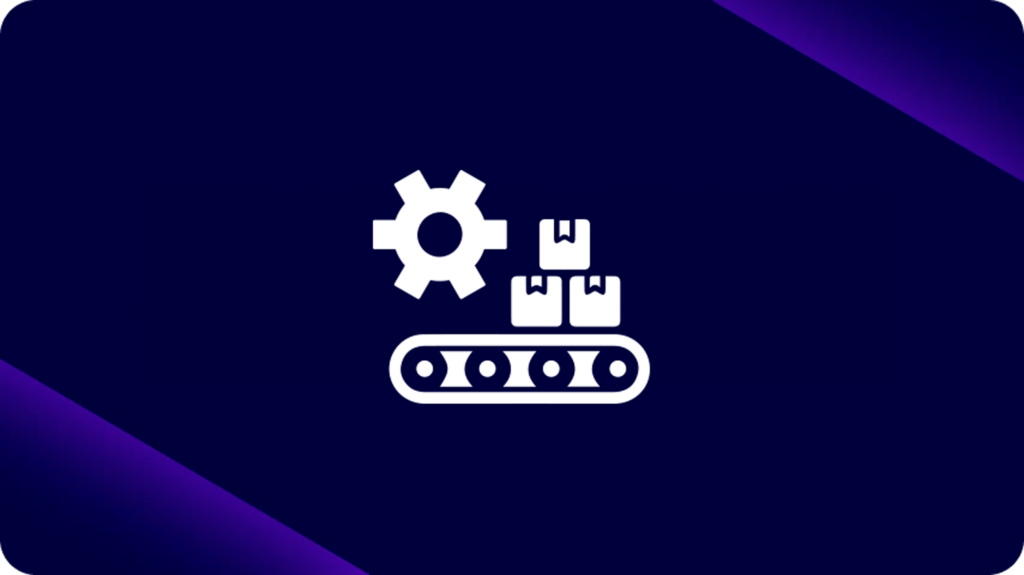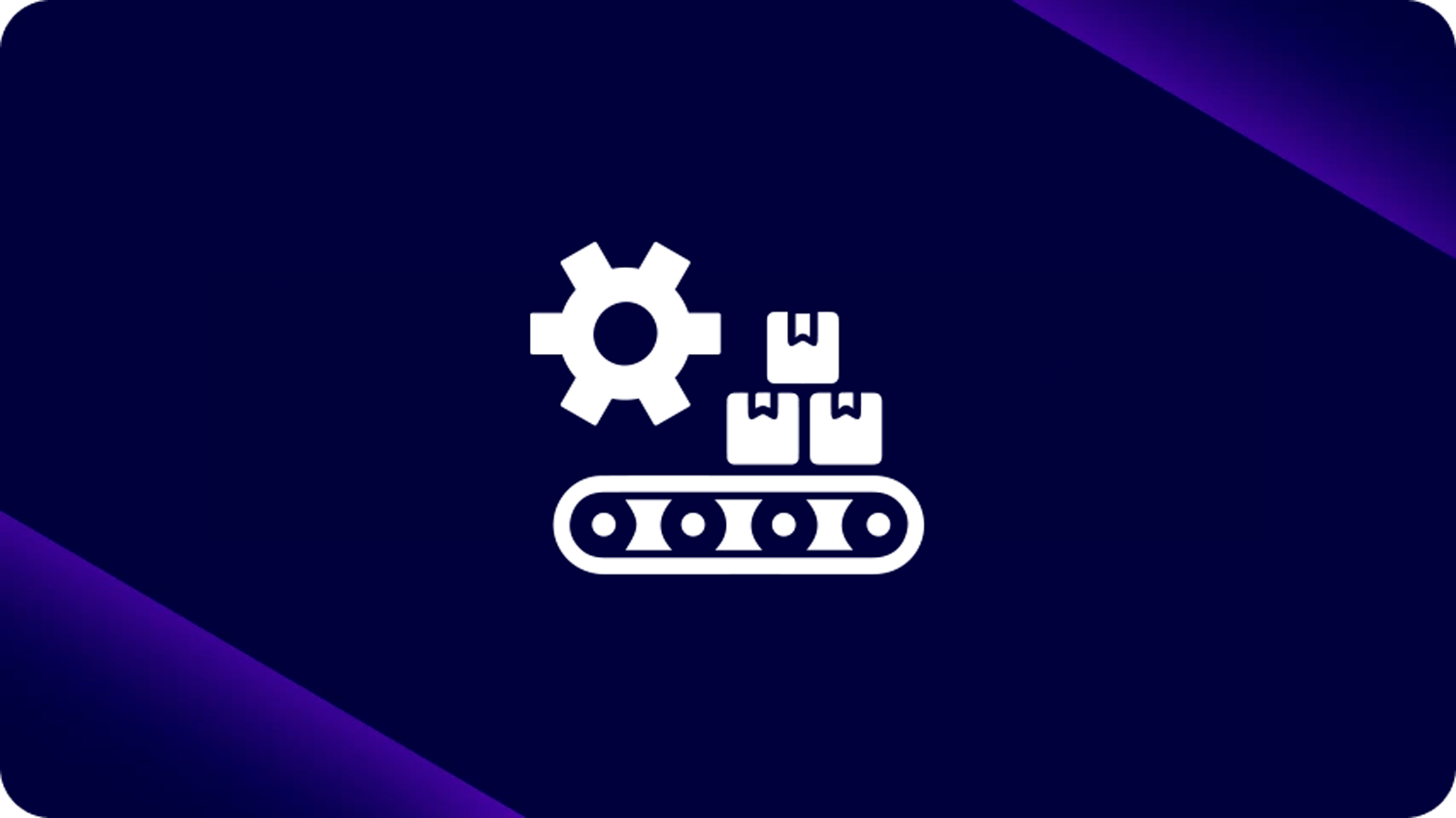April 15
Modern logistics is increasingly complex and requires efficiency, precision and traceability to ensure operations run smoothly.
To achieve this, companies rely on several systems, such as WMS (Warehouse Management System), TMS (Transportation Management System) and ERPs (Enterprise Resource Planning), which need to be integrated to offer a holistic view of the logistics operation.
However, many organizations face significant challenges in connecting these solutions effectively.
In this post, we will explore the main challenges of logistics integration and the strategies to overcome them, ensuring greater operational efficiency and cost reduction.
>> Visit our website and learn more about Digibee's integration platform

The main challenges of logistics integration
Before achieving efficiency and accuracy in logistics, it is necessary to address common challenges that arise when operational systems are not well integrated. Below, we explore the main obstacles that compromise visibility, agility and logistics control.
1. Disconnected systems and lack of visibility
Many companies use different systems to manage their logistics operations, but these solutions do not always communicate with each other. This misalignment generates a series of problems, such as:
- Lack of access to updated data.
- Difficulty identifying bottlenecks and inefficiencies.
- Greater propensity for operational errors and delays.
- High costs with rework and resource inefficiency.
Lack of visibility into order flow, inventory and transportation can compromise a company's efficiency and responsiveness to dynamic market demands.
2. Integration between WMS, TMS and ERP
Each of these systems plays an essential role in logistics:
- WMS (Warehouse Management System): Manages inventory, controls the movement of products within the warehouse and optimizes storage.
- TMS (Transportation Management System): Coordinates the transportation of goods, routes deliveries and monitors the performance of modes.
- ERP (Enterprise Resource Planning): Consolidates information from different areas of the company, such as finance, purchasing and sales.
If these systems are not well integrated, data transmission failures can occur, causing shipping delays, inventory control errors and billing problems.
3. Bottlenecks in dispatch and distribution
Another major challenge is the fluidity of order dispatch and goods distribution. Without efficient integration, the following problems can occur:
- Orders being processed manually, increasing the likelihood of errors.
- Lack of traceability, making it difficult to monitor delivery.
- Difficulty in reacting quickly to delays and unforeseen events in the operation.
Companies that rely on fragmented processes end up compromising the customer experience and increasing operational costs.
>> Read also: What are the main pain points of systems integration in industry and how to solve them?
Benefits of integrating logistics systems
Overcoming the challenges of logistics integration opens up a series of operational gains. When systems are connected, the company gains greater visibility, efficiency and control over each stage of the logistics chain.
1. End-to-end traceability and visibility
The integration of logistics systems allows all information to be consolidated on a single platform, ensuring:
- Continuous monitoring of logistics operations.
- Better predictability for decision making.
- Reduction of manual errors and rework.
- More precise control over stock, transportation and deliveries.
This allows the company to optimize its operations and offer a more efficient and reliable service to customers.
2. Agility and efficiency in shipping orders
With automated processes and efficient integration between WMS, TMS and ERP, it is possible to:
- Reduce order processing time.
- Avoid breakages and excess stock.
- Improve delivery accuracy by ensuring products arrive on time.
- Reduce dependence on manual intervention, minimizing failures.
3. Operational cost reduction
Efficient logistics management allows for a significant reduction in costs, as:
- Increase team productivity.
- Reduces losses due to errors and delays.
- Optimizes the use of transport modes.
- Improves negotiation with suppliers and carriers.
These improvements have a direct impact on the company's profit margin and the business's competitiveness.
>>Visit Digibee's special page on integration for industries
How to overcome challenges with an integration platform
To ensure efficient logistics integration, many companies are adopting iPaaS (Integration Platform as a Service) solutions, such as Digibee. These platforms allow:
- Orchestrate systems in a simple and flexible way.
- Create integration flows without the need for extensive coding.
- Automate the exchange of information between WMS, TMS and ERP.
- Reduce the time and cost of implementing integrations.
Implementation example
Digibee helps companies connect their logistics systems without interruption to operations. With its low-code approach, the platform simplifies the development of integrations and accelerates the digitalization of the logistics chain.
With Digibee, companies can:
- Synchronize data between systems continuously.
- Create automated workflows for dispatch and distribution.
- Eliminate bottlenecks and increase operational efficiency.
>> Read also: AI Pair-Programmer: Meet the AI-based integration development assistant
Case Study: Mariner Logistics accelerated product development 24x with Digibee
Mariner, a logistics technology broker, needed to integrate multiple technologies into a unified system to increase efficiency and automate operations. The challenge? Its engineers were spending months manually coding integrations, which was costly and limited scalability.
With Digibee, the company adopted a low-code approach, allowing less experienced professionals to handle integrations while senior engineers focused on innovation. As a result, development time dropped dramatically, and ROI was achieved in just three months.
Do you want to know how this transformation happened in practice? Check out the full case study.
Demo the Digibee platform
Logistics integration is essential to ensure efficient operations, traceability and cost reduction. Companies that invest in iPaaS solutions, such as Digibee, can connect their systems quickly and securely, eliminating barriers and optimizing logistics management.
The future of logistics depends on connectivity and automation. Is your company ready for this transformation?
>> Book a personalized demo with our team of experts and see how Digibee's iPaaS will bring efficiency to your operation Logistics.









